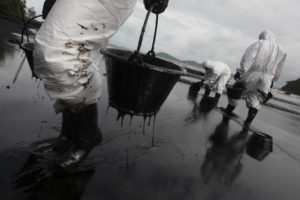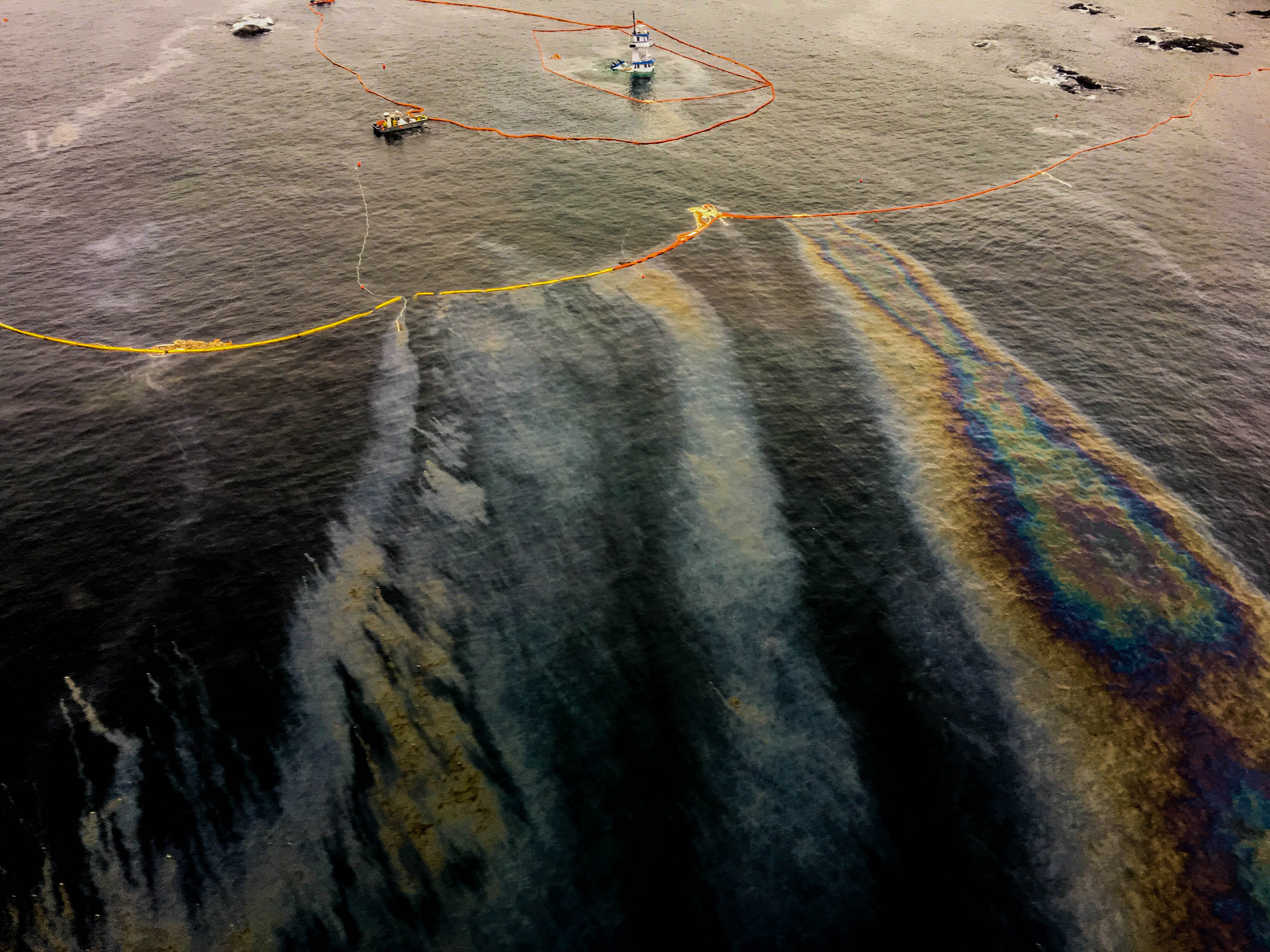
Photo: Roengrit Kongmuang/Greenpeace
Current oil spill response cannot keep BC’s coast safe. The International Tanker Owners Pollution Federation estimates oil recovery for spills at sea at 10-15%, and Transport Canada says 5-15%. This is not an acceptable standard for the ecosystems, economies and communities we live in.
An oil spill in our local waters is a matter of ‘when’, not ‘if’: the Salish Sea has been identified as a high risk region for spills. Human error continues to be the leading cause of accidents.
BC is not ready for a large oil spill. The 2015 Marathassa fuel spill in Vancouver’s harbour took place in a nearly best-case scenario, with relatively calm weather, ample spill monitoring resources and a spill response base nearby. It still took four and half hours to begin clean-up, and over 10 hours just to identify the source of the spill.
In October 2016, the Nathan E Stewart sunk near Bella Bella, spilling more than 100, 000 L of diesel and 2,000L of lubricant into the surrounding waters. The spill was caused by a sailor asleep at the wheel and a failure to use safety equipment. Spill response resources were inadequate and slow to mobilize, and containment booms were made useless by strong waves. A community that has relied on the sea since time immemorial has been changed in ways they are still trying to assess.
And we know that catastrophic incidents like the Exxon Valdez and Deepwater Horizon disasters have devastated ecosystems, coastal economies, and local communities for years.
We need to send a strong message to our government: to defend BC’s coast, they need to hold oil movement to a high standard. We need to implement best practices from jurisdictions like Alaska and Washington State, and go further to have the highest standards of safety and response.

